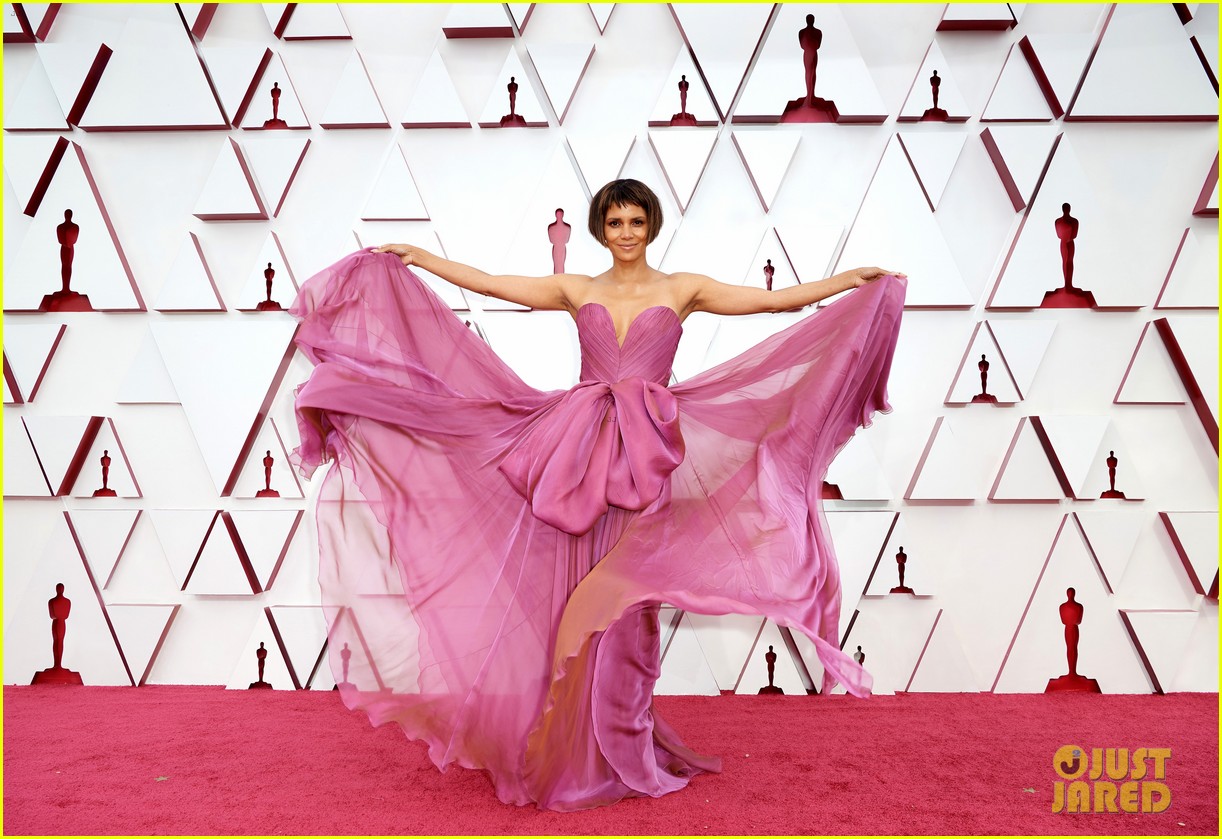Halle Berry's Oscar Triumph: A Historic Achievement
In the annals of Hollywood history, certain moments transcend the glitz and glamour to become cultural touchstones. Halle Berry's Oscar win is undoubtedly one such moment. It wasn't just about the award itself; it was about the weight of representation, the breaking of barriers, and the ushering in of a new era of possibility.
For decades, the Academy Awards, the pinnacle of cinematic achievement, lacked diversity in its recognition of leading actresses. The question, "What did Halle Berry win an Oscar for?" holds more significance than a simple trivia answer. It represents a pivotal shift in the landscape of Hollywood. Berry's win wasn't just a personal victory; it was a collective triumph for underrepresented communities.
Halle Berry's Oscar-winning performance was in the 2001 film *Monster's Ball*, a gritty and emotionally charged drama. She portrayed Leticia Musgrove, a working-class woman grappling with grief, poverty, and a complex relationship with a corrections officer played by Billy Bob Thornton. Her raw and vulnerable performance captivated audiences and critics alike.
The Academy Award for Best Actress solidified Berry's place in cinematic history. She became the first, and to date, the only Black woman to receive the prestigious accolade in that category. This historic win sparked widespread conversation about diversity and representation in Hollywood, prompting a long-overdue examination of the industry's biases.
The significance of Berry's achievement extends beyond the individual. It serves as a symbol of hope and inspiration for aspiring actors and filmmakers from marginalized communities. Her Oscar win signifies the potential for change, demonstrating that talent can and should be recognized regardless of race or background.
The film *Monster's Ball* explores themes of racial prejudice, grief, and redemption. Berry's portrayal of Leticia Musgrove is a masterclass in emotional depth and vulnerability. The Academy's recognition of her performance signaled a willingness to embrace complex narratives and acknowledge the contributions of actors from diverse backgrounds.
One of the key benefits of Berry's win was its impact on representation. Seeing a Black woman win Best Actress provided a powerful image of possibility for young people who had previously lacked such role models in mainstream media.
Another benefit was the increased awareness of the need for diversity and inclusion in Hollywood. Berry's win sparked crucial conversations about the lack of opportunities for actors of color and the systemic biases that perpetuate inequality within the industry. This heightened awareness paved the way for discussions about more inclusive casting practices and the development of stories that reflect the diversity of the world.
A third benefit was the inspiration it provided for aspiring artists. Berry's victory demonstrated that dreams can be achieved, even in the face of adversity and systemic barriers. Her success story continues to motivate aspiring actors and filmmakers from marginalized communities to pursue their passions and strive for excellence.
Advantages and Disadvantages of Increased Visibility After an Oscar Win
| Advantages | Disadvantages |
|---|---|
| Increased career opportunities | Increased scrutiny from the media and public |
| Higher earning potential | Pressure to maintain a certain image or level of success |
| Greater platform to advocate for important causes | Loss of privacy |
Frequently Asked Questions:
1. What year did Halle Berry win her Oscar? 2002
2. Who directed *Monster's Ball*? Marc Forster
3. What other awards did Halle Berry win for *Monster's Ball*? Several, including a Golden Globe nomination and a Screen Actors Guild Award.
4. What is the central theme of *Monster's Ball*? The film explores themes of grief, redemption, and racial prejudice.
5. Was *Monster's Ball* a critical success? Yes, the film received critical acclaim, particularly for the performances of Berry and Thornton.
6. What was the impact of Berry's Oscar win? It broke down barriers and sparked conversations about diversity and representation in Hollywood.
7. Has any other Black woman won Best Actress since Halle Berry? No.
8. What other notable films has Halle Berry starred in? *X-Men*, *Die Another Day*, *Jungle Fever*, and *Introducing Dorothy Dandridge*, to name a few.
In conclusion, the question "What did Halle Berry win an Oscar for?" leads us down a path of understanding the historical significance of her achievement. Beyond the accolades and the critical acclaim, her win for *Monster's Ball* represents a watershed moment for representation in Hollywood. It serves as a reminder of the power of perseverance, talent, and the importance of continuing to strive for greater diversity and inclusion in the entertainment industry. It is crucial to recognize and celebrate achievements like Berry's, not just for the individual accomplishment, but for the broader impact they have on shaping a more equitable and representative future for cinema. Her win continues to inspire and serves as a testament to the power of breaking barriers and challenging the status quo.
The allure of the porsche in black olive green
Peter ellis trooper guard dismissal understanding the controversy
Unlock your dream home with the sherwin williams color guide














